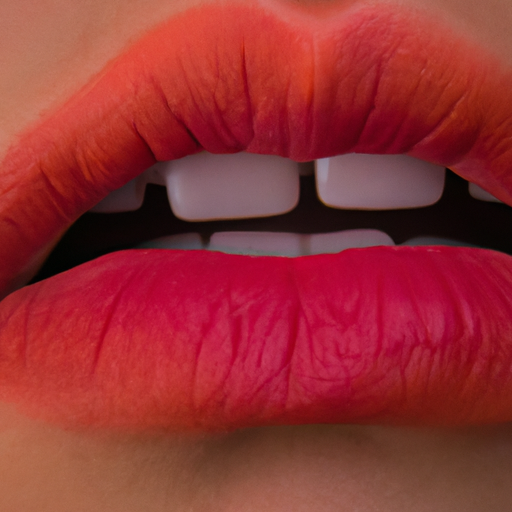As a medical professional, I often encounter patients with a common yet often overlooked condition: chapped lips. This seemingly trivial issue can cause discomfort and, in severe cases, lead to more serious complications. Understanding the causes and treatments for chapped lips is essential for maintaining overall oral health.
Chapped lips, medically known as cheilitis, are characterized by dry, flaky, and sometimes painful lips. The condition is often more prevalent during winter months due to the harsh weather conditions, but it can occur at any time of the year.
The skin on our lips is thinner and more delicate than the rest of our body, making it more susceptible to damage. Unlike the rest of our skin, our lips do not contain oil glands, which are responsible for keeping the skin moisturized. This lack of natural lubrication makes our lips vulnerable to external factors such as cold or dry weather, wind exposure, and excessive licking of the lips.
Dehydration is another significant cause of chapped lips. When the body is dehydrated, it pulls water from certain areas, including the lips, leading to dryness. Certain medications can also cause chapped lips as a side effect, including acne medications like isotretinoin and certain chemotherapy drugs.
While chapped lips are generally harmless and temporary, they can sometimes be a sign of more serious underlying conditions. For instance, angular cheilitis is a condition that causes redness and cracking in the corners of the mouth and may indicate a bacterial or fungal infection. Cheilitis glandularis is another severe form of chapped lips characterized by inflammation and swelling of the lip’s minor salivary glands.
Now that we’ve established what causes chapped lips let’s delve into the solutions. The first and most obvious remedy is to keep your lips moisturized. Lip balms or emollients are an excellent way to achieve this. Look for products containing ingredients like beeswax, shea butter, or ceramides, which form a protective barrier on the lips and lock in moisture.
Hydration is key. Drinking plenty of water will not only benefit your overall health but also keep your lips hydrated from the inside out. Try to avoid licking your lips as saliva evaporates quickly, leaving your lips drier than before.
Protecting your lips from harsh environmental conditions is also crucial. In cold weather, cover your mouth with a scarf, and in sunny conditions, use a lip balm with SPF to protect against harmful UV rays.
If you’re dealing with persistent chapped lips that don’t seem to improve with over-the-counter treatments, it’s time to consult a healthcare professional. As mentioned earlier, chronic chapped lips could be a sign of an underlying condition that needs medical attention.
In conclusion, chapped lips are more than just a minor inconvenience. They can be a sign of dehydration, exposure to harsh environmental conditions, or even an indication of more serious health issues. By understanding the causes and implementing appropriate treatments, we can ensure our lips remain healthy and comfortable. Remember, your lips are an integral part of your overall oral health. Don’t neglect them!



